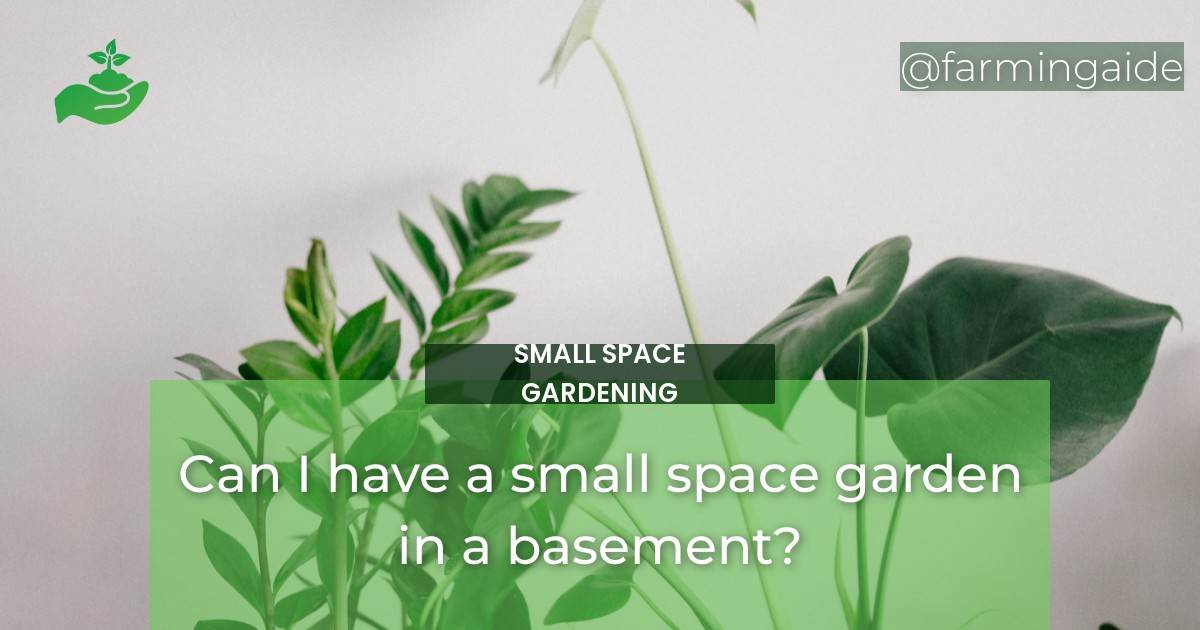Small Space Gardening: Gardening in basements with limited space and natural light
Understanding Basement Gardening
What is Basement Gardening?
Basement gardening in small areas are a great way to grow plants even when outdoor space is limited or the weather is unfavorable. Urban basement gardens are becoming popular as people seek ways to grow their produce, herbs, and flowers. Basement gardening involves growing plants in an indoor environment where soil, temperature, light, and humidity are controlled.Advantages of Basement Gardening
– Basement gardening is ideal for people living in apartments or places with limited outdoor space. – It provides fresh and organic produce that is free from pesticides and other chemicals. – It helps to improve indoor air quality and reduces carbon footprint. – It offers a relaxing and therapeutic hobby that can reduce stress.Challenges of Basement Gardening
– Limited space can be a challenge when choosing suitable plants and containers. – Artificial lighting is required, and this can be expensive to set up and maintain. – Proper ventilation is crucial to prevent mold and mildew growth. – The lack of natural pollinators can affect fruiting plants.Assessing Your Basement for Gardening
Evaluating Your Basement Space
Before starting a small space basement garden, it is essential to assess the available space. Determine the size of the area where you want to plant and the number of plants it can accommodate. Make sure there is enough space around the plants to enable good air circulation.Checking Natural Light Availability
Most plants require adequate lighting to grow and produce well. Evaluate the natural light availability in your basement and look for ways to increase the light if it is insufficient.Considering Temperature and Humidity
Basement temperature and humidity can vary, depending on the location and time of year. Plants have specific temperature and humidity requirements for optimal growth. Use a thermometer and a hygrometer to monitor the temperature and humidity levels regularly.ALSO READ
Choosing Plants for Basement Gardening
Vegetables and Fruits Suitable for Basement Gardening
– Leafy greens such as lettuce, spinach, and kale are suitable for small space basement gardens as they require minimal space and light. – Tomato, cucumber, and pepper plants are ideal for fruiting plants, but they require more light and space. – Small fruiting varieties such as strawberries and blueberries are suitable for containers and indoor growing.Herbs Suitable for Basement Gardening
– Basil, parsley, mint, and thyme are among the popular herbs that can thrive in small space basement gardens. – Chives, cilantro, and oregano are also easy to grow indoors and add flavor to your meals.Flowers Suitable for Basement Gardening
– African violets, begonias, and peace lilies are suitable for indoor gardening and add color to your space.Setting Up Your Basement Garden
Choosing the Right Containers
The containers you choose for your small space basement garden should be suitable for the type and size of the plants you want to grow. Consider the drainage and aeration properties of the containers.Preparing the Soil Mix
The soil mix should be well-draining, light, and high in organic matter. You can create your soil mix or purchase pre-made mixes.Installing Artificial Lighting
Basement gardening requires artificial lighting to supplement natural light. LED grow lights are the most efficient and cost-effective option for small space basement gardens.Controlling Temperature and Humidity
Maintaining optimal temperature and humidity levels is crucial for plant growth. Use fans or a dehumidifier to lower humidity levels, and a space heater to increase temperature when necessary.ALSO READ


